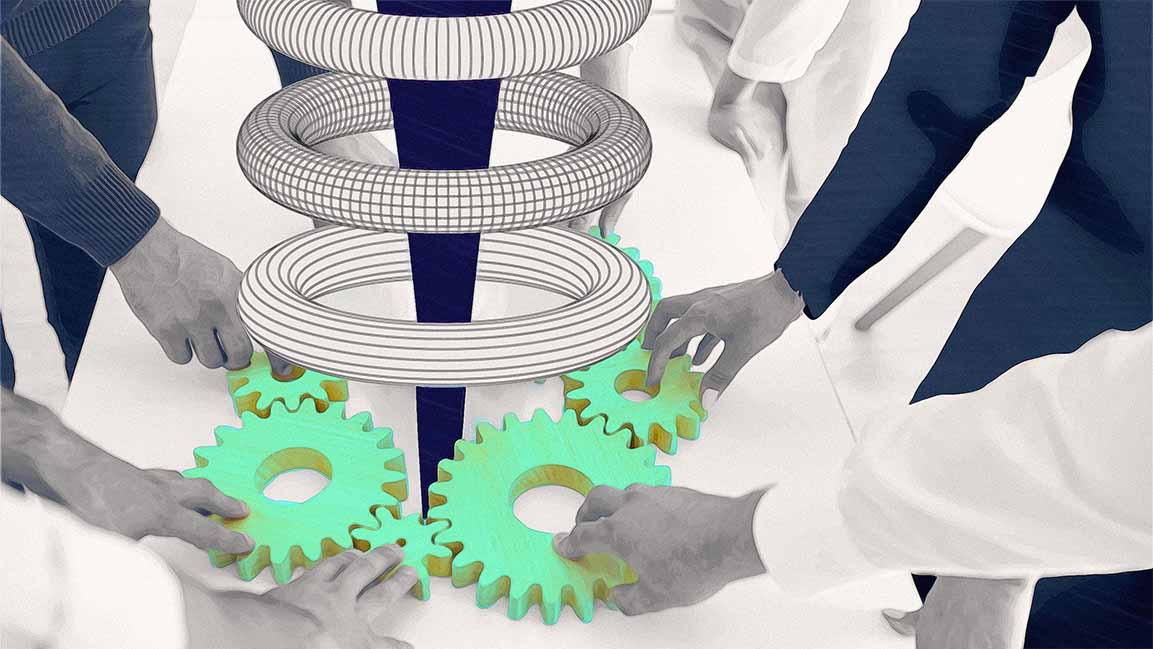- | 12:00 pm
How companies in the Middle East keep up with mission-critical innovation
Without fear of retribution, a whole lot of embracing mistakes, and with passion

Now accepting applications for Fast Company Middle East’s Most Innovative Companies. Click here to apply.
Even as we talk about disruption in terms of the now—Web3, metaverse, AI, and blockchain –- innovations will shape what’s next.
Innovation is tricky, challenging, and quite competitive. That’s the reason Fast Company Middle East spends months identifying the companies we think might merit recognition for our Most Innovative Companies list. The companies participating in our submission program and applying for consideration help us scour the best of the best in the region.
We’ve had the privilege to meet with some of the leaders of organizations named a Most Innovative Company by Fast Company Middle East in 2022, and others have told us why and how innovation is important for them.
IT STARTS WITH THE PEOPLE
Shereen Tawfiq, CEO of Balinca, a business finance company, describes the process of innovation as “running an obstacle course in the dark,” and notes that, with digitization and surging entrepreneurship, the Middle East has plenty of new ideas to build a solid foundation for the ecosystem’s growth.
For Tawfiq, innovation flourishes in an environment that “does not look down on mistakes,” stating that every mishap is a lesson learned. “If you want to innovate, forget the end result for a bit and walk a mile in the shoes of the person you wish to serve,” she adds.
Sharing a similar belief that people and talent remain the heartbeat of its business, CAFU’s chief business officer, Alaa El-Huni, says, “At our very core is a human-centered idea: give people back their most valuable commodity of all — their time.” He adds, “As a tech business, we recognize the need to adapt and evolve with the rapidly changing environment around us. Our success hinges on our ability to innovate and maintain a growth mindset.”
Abu Dhabi-based Masdar welcomes openness and curiosity through the process of innovation, which helps its employees explore new possibilities. Abdulaziz al Obaidli, COO of Masdar, says, “We adopt a system that recognizes and rewards innovation while encouraging creative thinking.”
Explaining that “innovation starts with culture,” PwC’s CPO, Mona Abou Hana, says people need to know that their perspectives and ideas can be expressed and valued. What comes next is ensuring access to resources, tools, and technologies to support innovative endeavors.
PASSION IS THE SECRET INGREDIENT
For those thoughts and ideas to come together, these companies agree on one vital factor: passion.
Discussing Masdar’s green hydrogen projects and clean energy, Al Obaidli says it’s important people care about what they do and its consequences for a better future. “Our teams have a passion for clean energy and are deeply committed to sustainability, which is why we see high staff retention.”
“The renewable energy sector is very competitive — innovation allows us to maintain a competitive edge and address complex challenges, to drive progress and meet customer needs. By embracing innovation, we can make a lasting impact and contribute to shaping the sector’s future,” he adds.
For Tawfiq, passion comes with being positive and happy. She recollects a training she attended in Germany to increase IQ by up to 12 points, which gave her a whole new outlook on life. “When I went there, I discovered that the premise of stronger IQ lies in your Alpha vibration. Alpha brain vibration is a measure of your happiness, and it is directly related to how satisfied you are with your life, how much you can get what you want in life, and how you run your daily business.”
Team cohesion is an important aspect of the CAFU office, with El-Huni saying there is an open-door policy to promote transparency and inspire open communication among people. They also set up an online portal to share documents across the team and have their bi-weekly meet, which helps “highlight key projects and wins.”
He says talent at CAFU is motivated to share their objectives and key results (OKRs,) to “create a sense of unity and shared purpose.”
Abou Hana says she recognizes that passion is involved in being able to aid clients in their real and pressing issues. “This kind of work requires innovative thinking and new working methods – a ‘tech-powered, human-led approach’.”
“We find that when our people are part of a bigger purpose and involved in transformative work, they’re better positioned to achieve their career aspirations,” she adds.
INNOVATION IS NOT ALWAYS LINEAR
Despite these success stories and the Middle East’s reputation as a hub for innovation, there are some challenges, one of them is finance. “Since there are fewer investors compared to Western nations, it is challenging for companies to raise the money they require to expand,” says Tawfiq.
More than 40% of CEOs cited the lack of funding as one of the most concerning issues for the success of their business and expressed that they think their organizations will no longer be economically viable in ten years, according to PwC’s annual global CEO survey.
Masdar’s Al-Obaidli expresses similar concerns. While the region’s fast-changing social, technological, and economic environment has provided fertile ground for an innovation culture to grow, he says challenges include regulatory frameworks, access to funding, and the need to strengthen intellectual property rights. “However, with ongoing efforts from governments, institutions, and the private sector, the Middle East continues to make significant strides in nurturing a thriving innovation ecosystem.” Another challenge is the small market size and startups competing with bigger multinational corporations.
Abou Hana shares that GenZ can be a tremendous resource in providing innovation, saying, “We have seen several countries across the region make significant efforts to foster innovation and entrepreneurship as part of their economic diversification strategies, and that, coupled with the fresh perspectives of Gen Z, which are now firmly entrenched in our multi-generational workforce, makes for exciting times.”








































